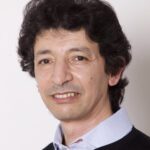Lien vers Pubmed [PMID] – 20182609
Lien DOI – 10.1101/cshperspect.a003095
Cold Spring Harb Perspect Biol 2010 Jan; 2(1): a003095
The 6-billion human population provides a vast reservoir of mutations, which, in addition to the opportunity of detecting very subtle defects, including specific cognitive dysfunctions as well as late appearing disorders, offers a unique background in which to investigate the roles of cell-cell adhesion proteins. Here we focus on inherited human disorders involving members of the cadherin superfamily. Most of the advances concern monogenic disorders. Yet, with the development of single nucleotide polymorphism (SNP) association studies, cadherin genes are emerging as susceptibility genes in multifactorial disorders. Various skin and heart disorders revealed the critical role played by desmosomal cadherins in epidermis, hairs, and myocardium, which experience high mechanical stress. Of particular interest in that respect is the study of Usher syndrome type 1 (USH1), a hereditary syndromic form of deafness. Studies of USH1 brought to light the crucial role of transient fibrous links formed by cadherin 23 and protocadherin 15 in the cohesion of the developing hair bundle, the mechanoreceptive structure of the auditory sensory cells, as well as the involvement of these cadherins in the formation of the tip-link, a key component of the mechano-electrical transduction machinery. Finally, in line with the well-established role of cadherins in synaptic formation, maintenance, strength, and plasticity, a growing number of cadherin family members, especially protocadherins, have been found to be involved in neuropsychiatric disorders.


